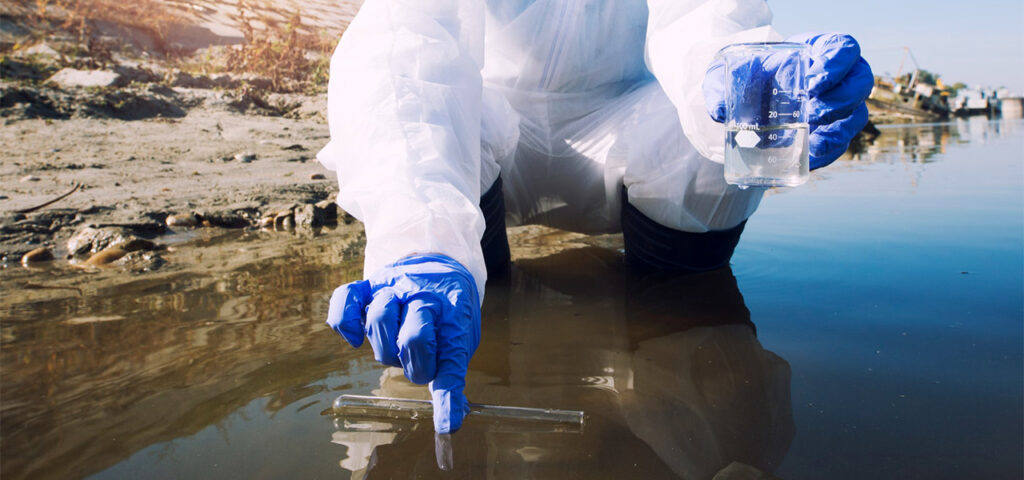Federated Health Charities’ mission is to improve the health and quality of life of all Ontarians by supporting 21 different health charities providing critical services to those experiencing, or affected by, illness. We believe education and prevention are key parts of supporting the health of our communities, so our weekly Health Hint series strives to provide tangible and easy to implement hints and tips on how to maintain your health, prevent disease, and enjoy increased quality of life. Check out our latest Health Hint on what to be aware of regarding mercury in fish. We hope you find it helpful. If you would like to join our efforts to support the health of Ontario, please consider a donation to Federated Health Charities.
Mercury in Fish: Decades of Contamination
More and more people are becoming aware of the hazards of mercury in fish. While fish is generally considered to be a healthy protein, mercury percentages in fish have been steadily climbing over the past 20 years.
Mercury usually ends up in the water from power plants and while this isn’t meant to be a doomsday prophecy or environmental hand slapping, it’s important to understand to protect you and your family.

The Hazards of Mercury
Due to continuous environmental doomsaying, it’s hard to figure out the truth from noise. Mercury is everywhere, let’s face that.
The real concern is mercury contamination in our seafood and in the water we drink. There are a number of ways to remove mercury from the water, but the effects are still there.
In fact, it’s estimated that nearly 6-8% of women ages 16-49 have critical levels of mercury in their blood.
The dangerous reality is that you can’t remove mercury from fish once it’s contaminated. All you can do is avoid eating the fish and drinking the water.
How Does Mercury Get There?
There are three primary ways that mercury enters the environment:
Anthropogenic – Human activity
Natural – Volcanos, fires, and ore
Reemissions – Re-released mercury
Humans are responsible for about 50 percent of all mercury emissions in the United States. The primary source is coal-fired power plants. Much of the mercury issues in the rest of the world come from particularly poor countries in Southeast Asia.
Natural emissions from volcanoes, forest fires, and ore make up about 10 percent of mercury in the environment. These issues we don’t have control over.
Lastly, re-emissions occur when mercury that has already been introduced to the environment is re-released by another activity.

What is Biomagnification?
Biomagnification occurs when mercury is moved through the food chain from something as small as plankton to something as large as a shark.
This is the reason why some of the largest fish like swordfish and tuna have the highest concentration of mercury. It’s because everything they eat contains mercury. The bigger the fish, the more prey it must consume that is already dealing with mercury contamination.
How to Control it?
One way we’re already controlling mercury contamination is by introducing Bromine to coal-fired plants. Using better energy sources like natural gas can reduce the amount of mercury entering the water. Also, disposing of things like batteries, thermometers, and thermostats properly will reduce the amount of mercury in the environment.
How to Shop for Fish
The ultimate question then becomes, “how do I safely shop for fish”?
Avoiding large predatory fish like shark, tuna, and swordfish is one way. Shellfish, salmon, and canned fish are lower in mercury than the aforementioned options.
One of the best ways is to purchase only fresh caught fish in the United States. Wild caught fish is lower in mercury because it’s not raised in farms contaminated with mercury infested waters.
While the solution to the mercury problem is still a gray area, there is progress being made every day.
We hope you liked our latest Health Hint!
Written by CotyPerry, Your Bass Guy
Related Articles:
Health Hint! – General Immune Boosting Practices
Health Hint: What are Nutrients?
Health Hint! – Basics of Calories & Nutrients
Health Hint! – How Sugar Can Lead to Inflammation
References:
For more information on the subject and to read the full article, check out Mercury in Fish: How Did It Get There and What To Do About It over at YourBassGuy.com.







